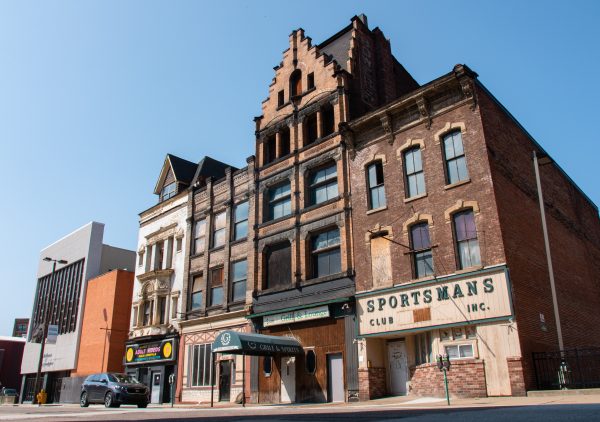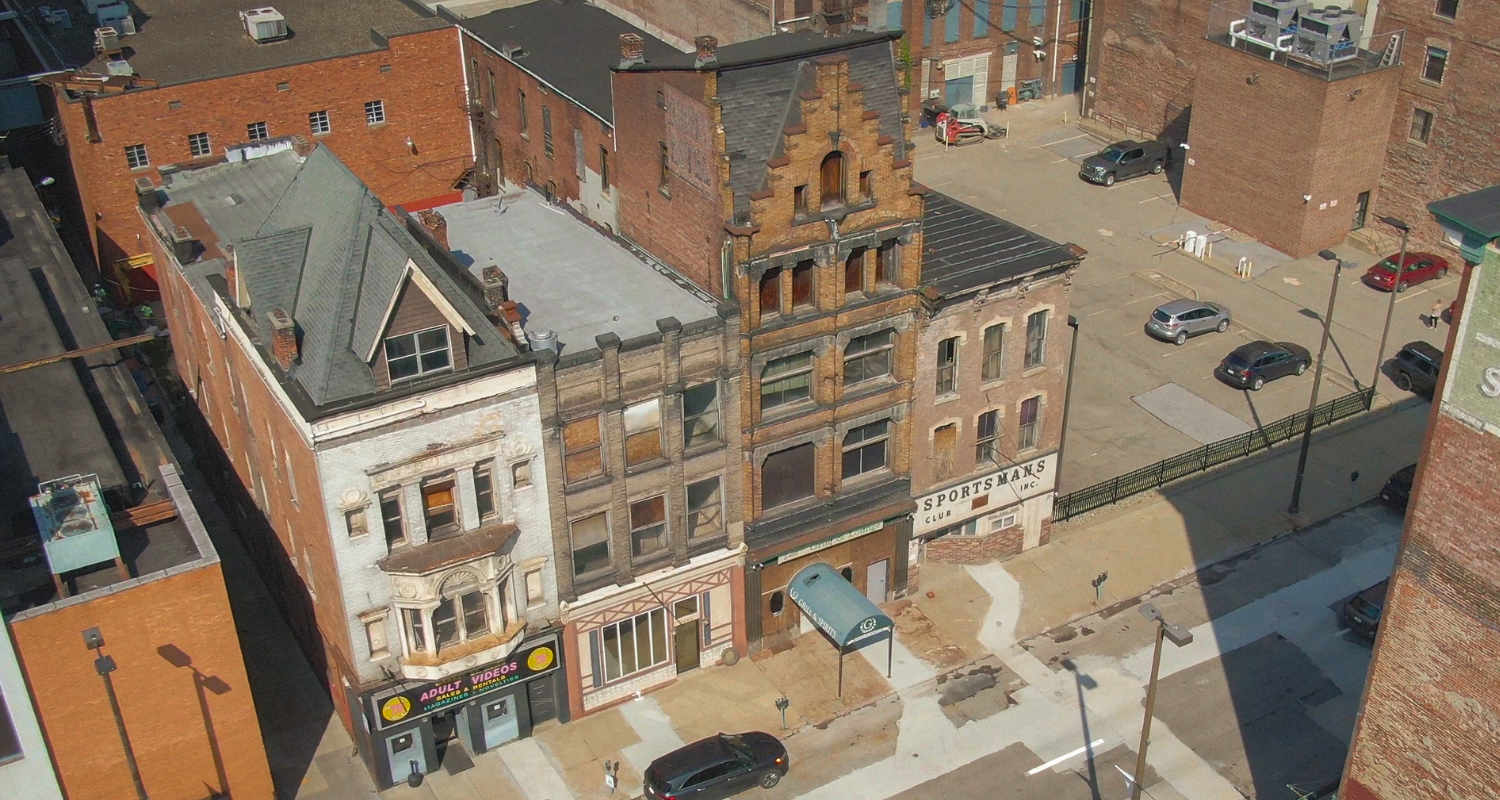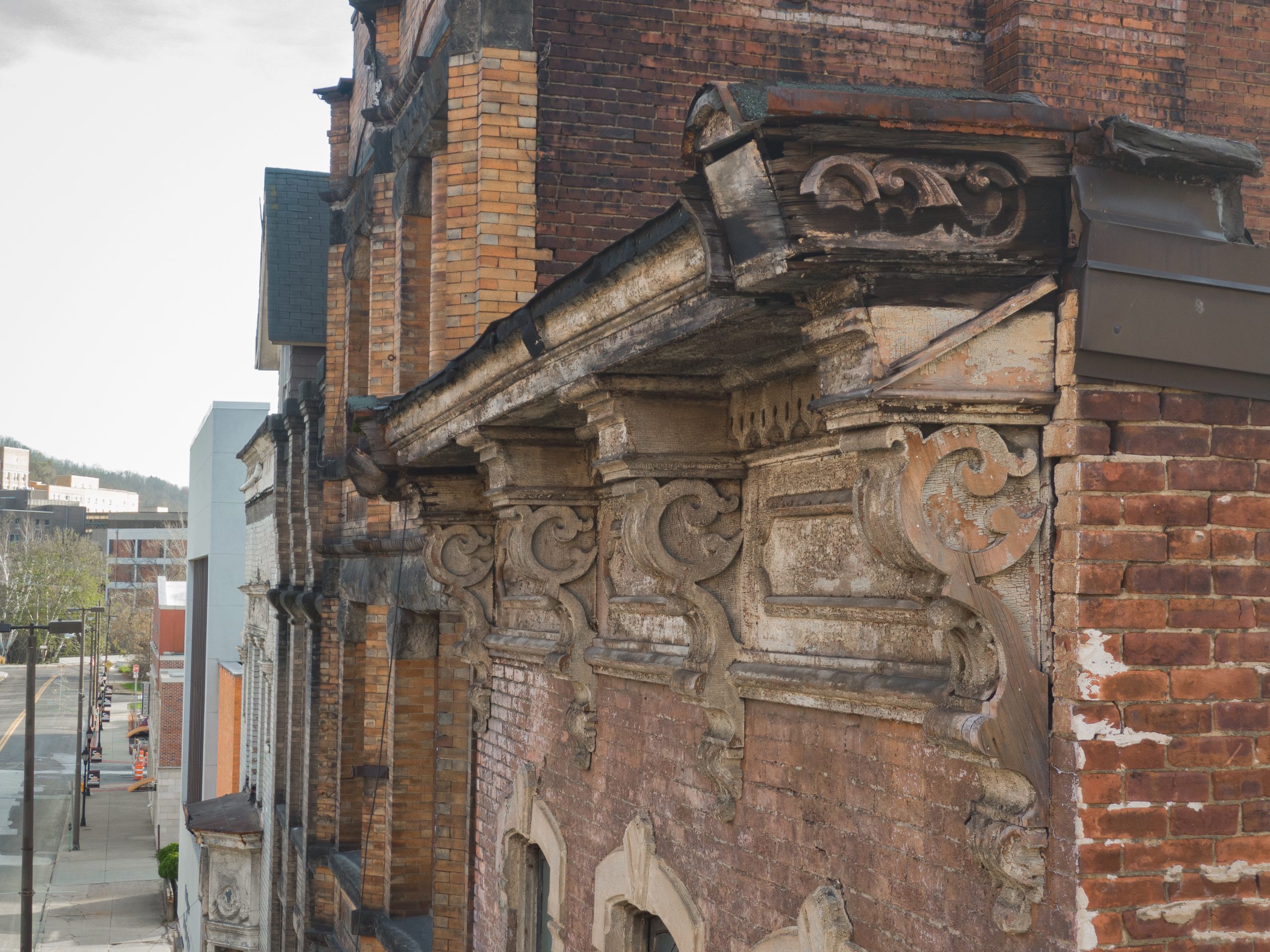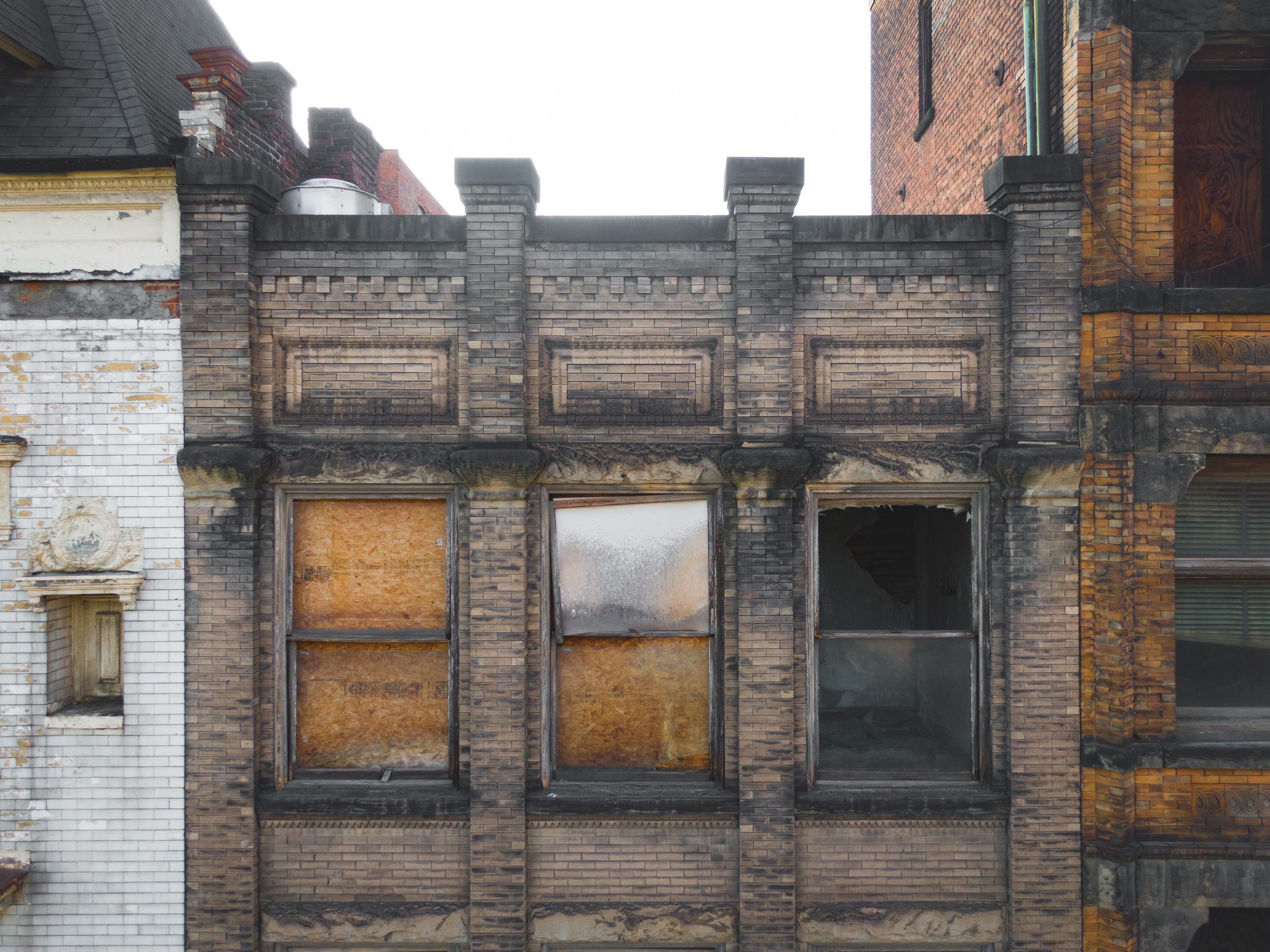Driving through Downtown Wheeling, it’s easy to get distracted by all of the traffic cones and construction and forget what all of those temporary inconveniences will ultimately lead to – PROGRESS!
And the progress continues this week with Wheeling’s City Council passing an ordinance to authorize the City Manager to release funds and work with Desmone Architects (the interested developer) to conduct emergency stabilization on the 1400 Block of Market Street.
How Did We Get Here?
The City of Wheeling, under the leadership of former Mayor Andy McKenzie, assumed ownership of 1433, 1429, and 1425 Market Street with the goal of positioning them for redevelopment. In 2016, the City under Mayor Elliott purchased 1437 to complete the block, in the hopes of creating a more palatable product for developers. From that point on, a couple of interested developers recognized the potential in these properties, but for various reasons (including the COVID-19 pandemic), their plans didn’t come to fruition.
In September 2021, The City of Wheeling and Wheeling Heritage joined forces to market both the 1400 Block and the Blue Church to qualified developers from across the country. With the help of development and marketing firms Steadfast City and Evenbound, they were able to showcase the incentives and growth potential of these properties and reach new audiences that might not otherwise be aware of Wheeling. After a nationwide Request for Proposals process, three developers submitted proposals for the 1400 Block.
After reviewing all of the proposals, City officials ultimately decided that Desmone Architects was the right choice. A Pittsburgh-based firm, Desmone Architects has completed more than 3.55 million square feet worth of historic adaptive reuse projects in the last three years. These projects include TRYP by Wyndham Pittsburgh/Lawrenceville, Matthew’s Lofts, and The Industrialist Hotel. The Desmone team has also designed several trendy restaurants, including Brick Shop, Over Eden, and Mountain State Brewing Company.
Worth Saving
So, why go through all of this trouble to save a few buildings? While the 1400 Block is certainly a challenging set of buildings, they are historically important to the fabric of Downtown Wheeling.
Situated on a major downtown thoroughfare, a stone’s throw away from the birthplace of West Virginia, the four buildings that make up the 1400 block are a critical piece of the historic streetscape. Density is critical to urban landscapes, and visitors to any downtown area expect visually interesting complete streets.

Despite their historic value, these buildings are in a constant state of decline. Enduring another winter without repairs could prove terminal, and a vacant lot would be a sad reminder of what once was.
“We know that every building has a lifespan, and while these buildings were built to last, everything has a limit. Stabilization efforts are essential at this point to ensure that there are buildings to redevelop in the spring” said Betsy Sweeny, Director of Programming at Wheeling Heritage.
Desmone architect and project manager Josh Frick agrees. “The buildings are in rough shape, with leaky roofs and missing windows, and taking on increasing amounts of rain as time goes on,” said Frick.
This urgency is why the City has agreed to release funds for stabilization while the development team continues with their due diligence. After the first reading before City Council on Nov. 15, council members unanimously voted in favor of a resolution to release funds that will ensure that the buildings can withstand the winter.
“Tonight’s vote is a major step to protect and revitalize the rich history of the 1400 Market Block,” said Chip Desmone, principal of Desmone Architects. “It is the heart of downtown and we are excited to collaborate with the City to deliver a product that everyone in Wheeling can be proud of.”
Mayor Elliott remarked on the importance of preserving these buildings, “at the end of the day we will have converted a block of several vacant, dilapidated buildings into a retail and residential hub that will further push the needle forward on our overall downtown revitalization goals.”
The Power of Partnership
The redevelopment of the 1400 Block is incredibly challenging and has required a truly collaborative team of public and private entities. The City of Wheeling and Wheeling Heritage created an outreach strategy that garnered national attention and brought forth a new slate of qualified developers.
Vice Mayor Thalman commented, “for several years, city council has been trying to preserve these historic structures. I’m happy to see this project moving forward and excited about a major investment being made in a historic block in our downtown.”
“This project is wholly unique in terms of the team, approach, and capital stack,” said Sweeny. “Community development requires just that – community. Mayor Elliott and Vice Mayor Thalman have made it clear that saving these buildings was a top priority for them, and really allowed Wheeling Heritage to get creative in solving for this problem.”
Sweeny also noted the caliber of the team assembled for this project has been crucial in it coming to fruition. “The team Chip Desmone assembled with Desmone Architects and Tipping Point are some of the most sophisticated preservation developers out there, and their expertise coupled with public support is what will get this project across the finish line.”
When asked why he chose to take on this project, Desmone recognizes the importance of keeping Wheeling’s downtown buildings intact. “These buildings deserve to be saved and we have assembled a team both public and private that are willing to do the heavy lifting that’s required to help transform this block,” said Desmone.
“The redevelopment of the four contiguous 1400 Block properties on Market Street represents the skillful packaging of various tax and redevelopment incentives to make a seemingly impossible project make economic sense,” said Wheeling Mayor Glenn Elliott. As proposed, the project will utilize Historic Tax Credits, New Market Tax Credits, Local and State grants and incentives (including several City-run programs like the facade improvement program), and permanent debt.
These incentives are what make large-scale historic preservation possible, according to, Jim Ambrose of Tipping Point Development (Desmone Architect’s consulting firm). “A project like this really needs to utilize every opportunity out there to come to fruition,” said Ambrose
READ MORE: The Many Lives of the 1400 Block of Market Street
What’s Next?
With this ordinance, the development team is positioned to begin work to ensure that the buildings are able to withstand the winter and are ready for the next phases of development.
While the stabilization activities are underway, Desmone will continue to produce the drawings and plans necessary for full construction. Completing this work in concert with the stabilization will allow for a seamless transition and expedite the project timeline.
“We’ve prepared a remediation and stabilization plan to try to hold off more damage over the winter, and to allow our design team to safely access the buildings to get measurements and catalog surviving historic elements. We’ll use that information to complete our design and if all goes according to plan we should be ready for the full construction and repair work sometime in the Spring,” said Frick.
The intent is to restore the buildings to their former glory by activating the first floors for commercial use, and utilizing the upper floors for residences.
When asked about the future impact of this project, Jim Ambrose of Tipping Point Development stated, “The City of Wheeling and Wheeling Heritage are establishing an innovative method on how public and private partnerships can work to achieve historical revitalizations in their downtown. Even though this type of economic development is more costly on the front end, it provides an enriching downtown experience both for locals and visitors. I think Wheeling will become a leader by example for other West Virginia cities seeking transformation.”
Weelunk will continue to follow the progress of this project, and the revitalization of Wheeling.






